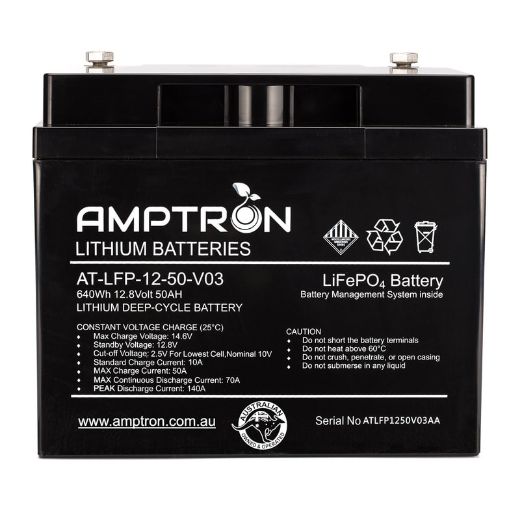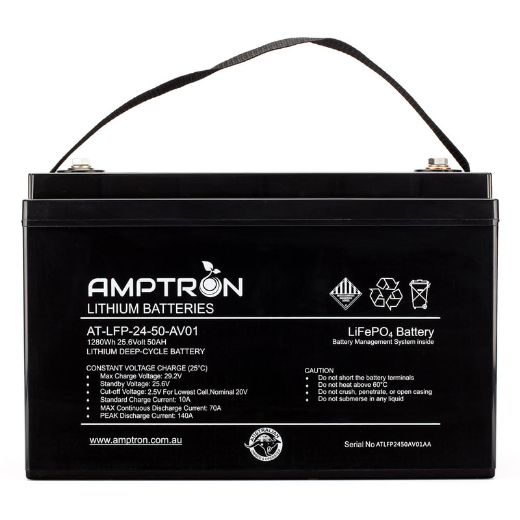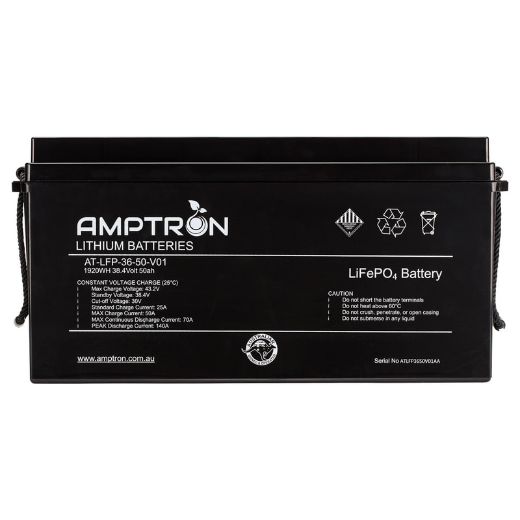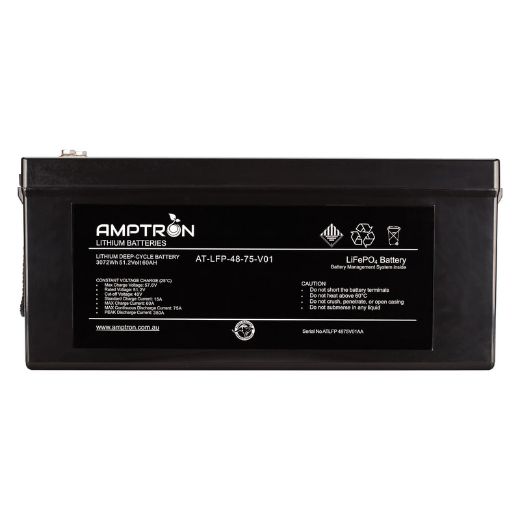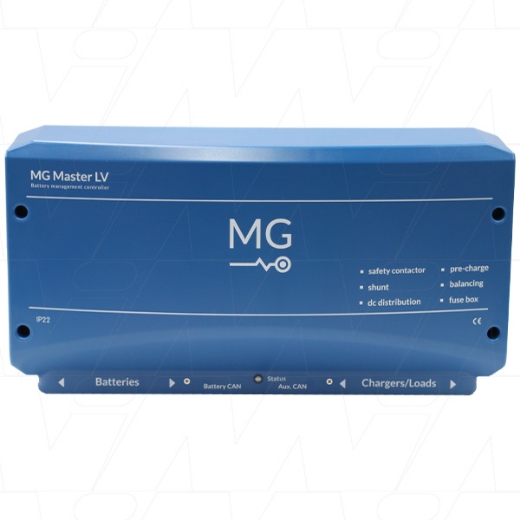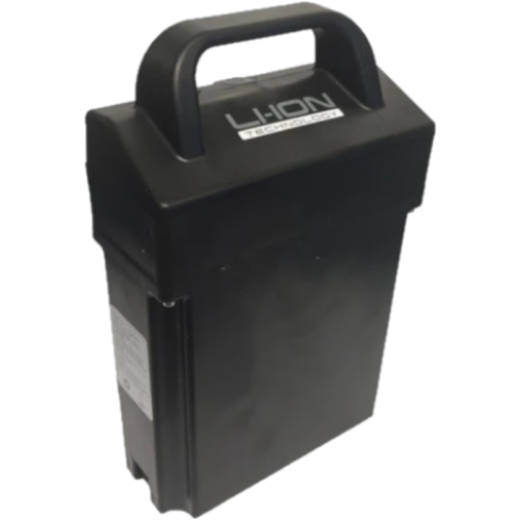Close
-
Products
- Batteries
- Auto Electrical
- Solar Power
- Our Brands
-
About Us
- Back
- Mackay
- Townsville
- Home Page
- FAQ
- Contact Us
- News
- Gift Cards
- SDS Register
- Battery Cross Reference Guide
Menu
-
Products
- Back
- 240V Electrical
- AGM-Gel
- Auto Electrical Parts
-
Automotive Batteries
- Back
- Delkor
-
Exide
- Back
- Automotive
-
Exide Enforcer
- Back
- Automotive
- Koba
-
Predator
- Back
- Automotive
-
Pro Choice Series
- Back
- Automotive
-
Batteries
- Back
- Delkor
- Exide
- Exide Enforcer
-
Hardcore
- Back
- Truck & Tractor
-
Koba
- Back
- Marine
- Truck & Tractor
-
Neuton Power
- Back
- Golf Buggy Batteries
- Odyssey
- Predator
- View All
- Battery Boxes
-
Battery Monitors & Meters
- Back
- Accessories
-
Battery Monitors
- Back
- Epro
- Meters
- Bluetti Portable Power Stations
- Car Acc
- Chargers
-
Commercial Generators
- Back
- Genelite
-
Deep Cycle Batteries
- Back
-
Delkor
- Back
- Deepcycle
-
Exide
- Back
- Deepcycle
- Golf Buggy
-
Neuton Power
- Back
- Golf Buggy Batteries
-
Predator
- Back
- Deepcycle
- Golf Buggy
- Trojan
- US
-
Device Batteries
- Electric Vehicle Chargers
- Enerdrive Power Systems
- Generators
- Gift Cards
-
Golf Buggy Batteries
- Back
-
Exide
- Back
- Golf Buggy
-
Neuton Power
- Back
- Golf Buggy Batteries
-
Predator
- Back
- Golf Buggy
- Trojan
- US
- Inverter Generators
- Inverters
- Jump Starter Packs
-
Lithium Batteries
- Load Testers
- Manual Chargers
- Marine Batteries
- Motorcycle Batteries
-
Mower Batteries
- Back
-
Delkor
- Back
- Mower
-
Exide
- Back
- Mower
-
Mower Batteries
- Back
- Mower
-
Predator
- Back
- Mower
-
Pro Choice Series
- Back
- Mower
-
Neuton Power Golf Buggy Batteries
- Back
-
Neuton Power
- Back
- Golf Buggy Batteries
- On Special
- Portable Power Stations
- Portable Solar Generators
- Pre-Built Power Systems
- Slimline Lithium Batteries
- Smart Chargers
- Solar Products
-
Start-Stop Batteries
- Back
- Delkor
-
Exide
- Back
- Automotive
-
Predator
- Back
- Automotive
-
Pro Choice Series
- Back
- Automotive
- Traditional Generators
-
Truck/Tractor & Earthmoving Batteries
- Back
-
Delkor
- Back
- Truck & Tractor
-
Exide
- Back
- Truck & Tractor
-
Exide Enforcer
- Back
- Truck & Tractor
-
Hardcore
- Back
- Truck & Tractor
-
Koba
- Back
- Truck & Tractor
- Neuton Power
-
Predator
- Back
- Truck & Tractor
-
Pro Choice Series
- Back
- Truck & Tractor
- UPS
-
UPS Batteries
- Back
- Predator AGM
- Batteries
- Auto Electrical
- Solar Power
- Our Brands
-
About Us
- Back
- Mackay
- Townsville
- Home Page
- FAQ
- Contact Us
- News
- Gift Cards
- SDS Register
- Battery Cross Reference Guide
- Home Page
-
Products
- Back
- 240V Electrical
- AGM-Gel
-
Auto Electrical Parts
- Back
- Alternators
- Auto Elec Parts
- Battery Trays
- Battery Volt & Amp Meters
- Brackets
-
Brake Controller Units
- Back
- Accessories
- Cable & Tubing
- Cable Protection
- Cable Ties
- Circuit Breakers
- DC-DC Converters
-
Driving Lights & Light Bars
- Back
- Light Bar
- Zeta Lights
- Dual Charging
- Fuses Fusible links & Fuse boxes
- Gauges & Meters
- Isolators
- Leads
- LED
- LED Interior
- Lights Bulbs & Globes
- Monitoring Systems
- OBD Vehicle Monitors
- Plugs - Sockets - Clips & Clamps
- Power Products
- Premade Battery Boxes
- Redarc Products
- Relays
- Starters
- Switches
- Terminals
- Tools
- Voltage Reducers & LVD
-
Automotive Batteries
- Back
- Delkor
-
Exide
- Back
- Automotive
-
Exide Enforcer
- Back
- Automotive
- Koba
-
Predator
- Back
- Automotive
-
Pro Choice Series
- Back
- Automotive
-
Batteries
- Battery Boxes
-
Battery Monitors & Meters
- Back
- Accessories
-
Battery Monitors
- Back
- Epro
- Meters
- Bluetti Portable Power Stations
- Car Acc
- Chargers
-
Commercial Generators
- Back
- Genelite
-
Deep Cycle Batteries
- Back
-
Delkor
- Back
- Deepcycle
-
Exide
- Back
- Deepcycle
- Golf Buggy
-
Neuton Power
- Back
- Golf Buggy Batteries
-
Predator
- Back
- Deepcycle
- Golf Buggy
- Trojan
- US
-
Device Batteries
- Back
-
AA - AAA - C - D - 9V Batteries
- Button Cells
- Camera
- Car Alarm & Remote Control
- Cordless Phone
- Cordless Vacuum
-
Crane Remote
- Back
- Chargers
-
Drycell
- Back
- Rechargeable
- Eftpos Terminals & Scanners
- Emergency & Exit Lighting
- Laptop & Tablet
-
Lithium Non-Rechargeable
- Back
- Size 1-2AA
- Size 9-10A
- Lithium Rechargeable
- Mobile Phone & Acc
- PLC/Memory Backup (MBU)
- Power Tool
- RC Hobby Battery Packs
- Roller Shutter Battery Packs
- Specialised Battery Packs
- Wireless Modem
- Electric Vehicle Chargers
- Enerdrive Power Systems
- Generators
- Gift Cards
-
Golf Buggy Batteries
- Back
-
Exide
- Back
- Golf Buggy
-
Neuton Power
- Back
- Golf Buggy Batteries
-
Predator
- Back
- Golf Buggy
- Trojan
- US
- Inverter Generators
- Inverters
- Jump Starter Packs
-
Lithium Batteries
- Load Testers
- Manual Chargers
- Marine Batteries
- Motorcycle Batteries
-
Mower Batteries
- Back
-
Delkor
- Back
- Mower
-
Exide
- Back
- Mower
-
Mower Batteries
- Back
- Mower
-
Predator
- Back
- Mower
-
Pro Choice Series
- Back
- Mower
-
Neuton Power Golf Buggy Batteries
- Back
-
Neuton Power
- Back
- Golf Buggy Batteries
- On Special
- Portable Power Stations
- Portable Solar Generators
- Pre-Built Power Systems
- Slimline Lithium Batteries
- Smart Chargers
- Solar Products
-
Start-Stop Batteries
- Back
- Delkor
-
Exide
- Back
- Automotive
-
Predator
- Back
- Automotive
-
Pro Choice Series
- Back
- Automotive
- Traditional Generators
-
Truck/Tractor & Earthmoving Batteries
- Back
-
Delkor
- Back
- Truck & Tractor
-
Exide
- Back
- Truck & Tractor
-
Exide Enforcer
- Back
- Truck & Tractor
-
Hardcore
- Back
- Truck & Tractor
-
Koba
- Back
- Truck & Tractor
- Neuton Power
-
Predator
- Back
- Truck & Tractor
-
Pro Choice Series
- Back
- Truck & Tractor
- UPS
-
UPS Batteries
- Back
- Predator AGM
- Batteries
- Auto Electrical
- Solar Power
- Our Brands
-
About Us
- Back
- Mackay
- Townsville
- Contact Us
- FAQ
- News
- Gift Cards
- SDS Register
- Battery Cross Reference Guide
Menu
- Home Page
-
Products
- Back
- 240V Electrical
- AGM-Gel
-
Auto Electrical Parts
- Back
- Alternators
- Auto Elec Parts
- Battery Trays
- Battery Volt & Amp Meters
- Brackets
-
Brake Controller Units
- Back
- Accessories
- Cable & Tubing
- Cable Protection
- Cable Ties
- Circuit Breakers
- DC-DC Converters
-
Driving Lights & Light Bars
- Back
- Light Bar
- Zeta Lights
- Dual Charging
- Fuses Fusible links & Fuse boxes
- Gauges & Meters
- Isolators
- Leads
- LED
- LED Interior
- Lights Bulbs & Globes
- Monitoring Systems
- OBD Vehicle Monitors
- Plugs - Sockets - Clips & Clamps
- Power Products
- Premade Battery Boxes
- Redarc Products
- Relays
- Starters
- Switches
- Terminals
- Tools
- Voltage Reducers & LVD
-
Automotive Batteries
- Back
- Delkor
-
Exide
- Back
- Automotive
-
Exide Enforcer
- Back
- Automotive
- Koba
-
Predator
- Back
- Automotive
-
Pro Choice Series
- Back
- Automotive
-
Batteries
- Battery Boxes
-
Battery Monitors & Meters
- Back
- Accessories
-
Battery Monitors
- Back
- Epro
- Meters
- Bluetti Portable Power Stations
- Car Acc
- Chargers
-
Commercial Generators
- Back
- Genelite
-
Deep Cycle Batteries
- Back
-
Delkor
- Back
- Deepcycle
-
Exide
- Back
- Deepcycle
- Golf Buggy
-
Neuton Power
- Back
- Golf Buggy Batteries
-
Predator
- Back
- Deepcycle
- Golf Buggy
- Trojan
- US
-
Device Batteries
- Back
-
AA - AAA - C - D - 9V Batteries
- Button Cells
- Camera
- Car Alarm & Remote Control
- Cordless Phone
- Cordless Vacuum
-
Crane Remote
- Back
- Chargers
-
Drycell
- Back
- Rechargeable
- Eftpos Terminals & Scanners
- Emergency & Exit Lighting
- Laptop & Tablet
-
Lithium Non-Rechargeable
- Back
- Size 1-2AA
- Size 9-10A
- Lithium Rechargeable
- Mobile Phone & Acc
- PLC/Memory Backup (MBU)
- Power Tool
- RC Hobby Battery Packs
- Roller Shutter Battery Packs
- Specialised Battery Packs
- Wireless Modem
- Electric Vehicle Chargers
- Enerdrive Power Systems
- Generators
- Gift Cards
-
Golf Buggy Batteries
- Back
-
Exide
- Back
- Golf Buggy
-
Neuton Power
- Back
- Golf Buggy Batteries
-
Predator
- Back
- Golf Buggy
- Trojan
- US
- Inverter Generators
- Inverters
- Jump Starter Packs
-
Lithium Batteries
- Load Testers
- Manual Chargers
- Marine Batteries
- Motorcycle Batteries
-
Mower Batteries
- Back
-
Delkor
- Back
- Mower
-
Exide
- Back
- Mower
-
Mower Batteries
- Back
- Mower
-
Predator
- Back
- Mower
-
Pro Choice Series
- Back
- Mower
-
Neuton Power Golf Buggy Batteries
- Back
-
Neuton Power
- Back
- Golf Buggy Batteries
- On Special
- Portable Power Stations
- Portable Solar Generators
- Pre-Built Power Systems
- Slimline Lithium Batteries
- Smart Chargers
- Solar Products
-
Start-Stop Batteries
- Back
- Delkor
-
Exide
- Back
- Automotive
-
Predator
- Back
- Automotive
-
Pro Choice Series
- Back
- Automotive
- Traditional Generators
-
Truck/Tractor & Earthmoving Batteries
- Back
-
Delkor
- Back
- Truck & Tractor
-
Exide
- Back
- Truck & Tractor
-
Exide Enforcer
- Back
- Truck & Tractor
-
Hardcore
- Back
- Truck & Tractor
-
Koba
- Back
- Truck & Tractor
- Neuton Power
-
Predator
- Back
- Truck & Tractor
-
Pro Choice Series
- Back
- Truck & Tractor
- UPS
-
UPS Batteries
- Back
- Predator AGM
- Batteries
- Auto Electrical
- Solar Power
- Our Brands
-
About Us
- Back
- Mackay
- Townsville
- Contact Us
- FAQ
- News
- Gift Cards
- SDS Register
- Battery Cross Reference Guide
Close
You have no items in your shopping cart.
Vehicle Battery Finder
- Home /
- Lithium Batteries
Categories
- 240V Electrical
- AGM-Gel
-
Auto Electrical Parts
- Alternators
- Auto Elec Parts
- Battery Trays
- Battery Volt & Amp Meters
- Brackets
- Brake Controller Units
- Cable & Tubing
- Cable Protection
- Cable Ties
- Circuit Breakers
- DC-DC Converters
- Driving Lights & Light Bars
- Dual Charging
- Fuses Fusible links & Fuse boxes
- Gauges & Meters
- Isolators
- Leads
- LED
- LED Interior
- Lights Bulbs & Globes
- Monitoring Systems
- OBD Vehicle Monitors
- Plugs - Sockets - Clips & Clamps
- Power Products
- Premade Battery Boxes
- Redarc Products
- Relays
- Starters
- Switches
- Terminals
- Tools
- Voltage Reducers & LVD
- Automotive Batteries
- Batteries
- Battery Boxes
- Battery Monitors & Meters
- Bluetti Portable Power Stations
- Car Acc
- Chargers
- Commercial Generators
- Deep Cycle Batteries
-
Device Batteries
- AA - AAA - C - D - 9V Batteries
- Button Cells
- Camera
- Car Alarm & Remote Control
- Cordless Phone
- Cordless Vacuum
- Crane Remote
- Drycell
- Eftpos Terminals & Scanners
- Emergency & Exit Lighting
- Laptop & Tablet
- Lithium Non-Rechargeable
- Lithium Rechargeable
- Mobile Phone & Acc
- PLC/Memory Backup (MBU)
- Power Tool
- RC Hobby Battery Packs
- Roller Shutter Battery Packs
- Specialised Battery Packs
- Wireless Modem
- Electric Vehicle Chargers
- Enerdrive Power Systems
- Generators
- Gift Cards
- Golf Buggy Batteries
- Inverter Generators
- Inverters
- Jump Starter Packs
- Lithium Batteries
- Load Testers
- Manual Chargers
- Marine Batteries
- Motorcycle Batteries
- Mower Batteries
- Neuton Power Golf Buggy Batteries
- Non-Returnable
- On Special
- Portable Power Stations
- Portable Solar Generators
- Pre-Built Power Systems
- Slimline Lithium Batteries
- Smart Chargers
- Solar Products
-
Special Order
- 12V Lithium Batteries
- 24V Lithium Batteries
- 48V Lithium Batteries
- AA - AAA - C - D - 9V Batteries
- Button Cells
- Camera
- Cordless Phone
- Crane Remote
- Drycell
- Drycell Chargers
- Eftpos Terminals & Scanners
- Emergency & Exit Lighting
- Lithium Non-Rechargeable
- Lithium Rechargeable
- Mobile Phone & Acc
- Phone & Tablet Chargers
- PLC/Memory Backup (MBU)
- Power Tool
- Power Tool Chargers
- RC Hobby Battery Packs
- Roller Shutter Battery Packs
- Specialised Battery Packs
- Wireless Modem
- Start-Stop Batteries
- Traditional Generators
- Truck/Tractor & Earthmoving Batteries
- UPS
- UPS Batteries
Manufacturers
Lithium Batteries
12VOLT 110AH SLIMLINE LITHIUM BATTERY
12110-SL120
Call Store
$1,336.48 Inc. GST
EACH
increase
decrease
12VOLT 110AH SLIMLINE LITHIUM BATTERY W/ BUILT-IN 20A DC-DC CHARGER
12110-SL120-DC20
TVL
(1)
$1,489.08 Inc. GST
EACH
increase
decrease
12VOLT 150AH SLIMLINE LITHIUM BATTERY W/ BUILT-IN 40A DC-DC CHARGER
12150-SLT240-DC40
Call Store
$2,490.19 Inc. GST
EACH
increase
decrease
12VOLT 150AH SLIMLINE LITHIUM BATTERY
12150-SLX120
Call Store
$1,749.00 Inc. GST
EACH
increase
decrease
12VOLT 150AH SLIMLINE LITHIUM BATTERY
12150-SLX240
Call Store
$1,998.86 Inc. GST
EACH
increase
decrease
25.6 VOLT 20AH / 20A BMS / 512WH CAPACITY DRYPOWER LIFEPO4 BATTERY - IP65 RATING
24LFP20
Call Store
$460.16 Inc. GST
EACH
increase
decrease
24VOLT 50AH / 50A BMS / 1280WH CAPACITY DRYPOWER LIFEPO4 BATTERY - IP64 RATING
24LFP50P
Call Store
$663.43 Inc. GST
EACH
increase
decrease
48VOLT 30AH RELION INSIGHT LIFEPO4 GOLF BUGGY BATTERY - IP67 RATING
48V030-GC2-001
Call Store
$2,050.00 Inc. GST
EACH
increase
decrease
12VOLT 105AH / 100A BMS ALLION LITHIUM DEEP CYCLE BATTERY - BLUETOOTH MODEL - IP65 RATING
AL12105-BT
Call Store
$1,130.00 Inc. GST
EACH
increase
decrease
12VOLT 105AH / 100A BMS ALLION LITHIUM DEEP CYCLE BATTERY - NON BLUETOOTH MODEL - IP65 RATING
AL12105F
Call Store
$1,017.50 Inc. GST
EACH
increase
decrease
12VOLT 105AH / 80A BMS ALLION SLIMLINE LITHIUM DEEP CYCLE BATTERY - BLUETOOTH MODEL - IP65 RATING
AL12105FTBT
Call Store
$1,093.50 Inc. GST
EACH
increase
decrease
12VOLT 126AH ALLION LITHIUM DEEP CYCLE BATTERY - BLUETOOTH MODEL - IP65 RATING
AL12126-BT
Call Store
$1,379.50 Inc. GST
EACH
increase
decrease
Quick Links
Customer service
Selected offers
My account









































